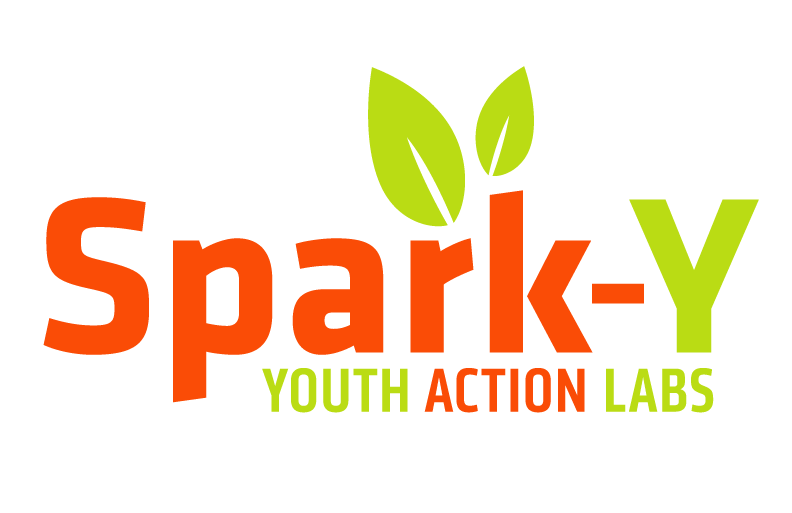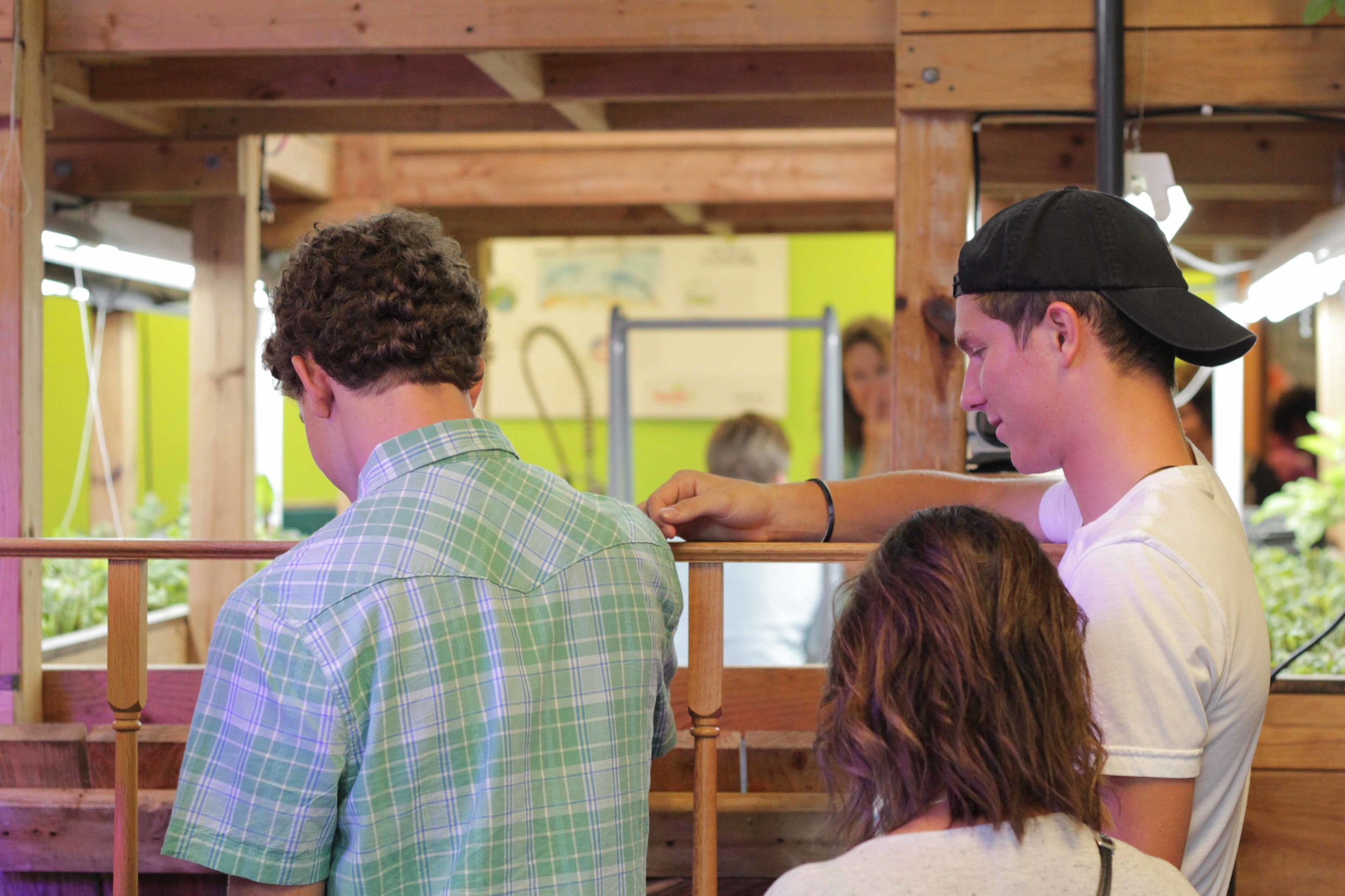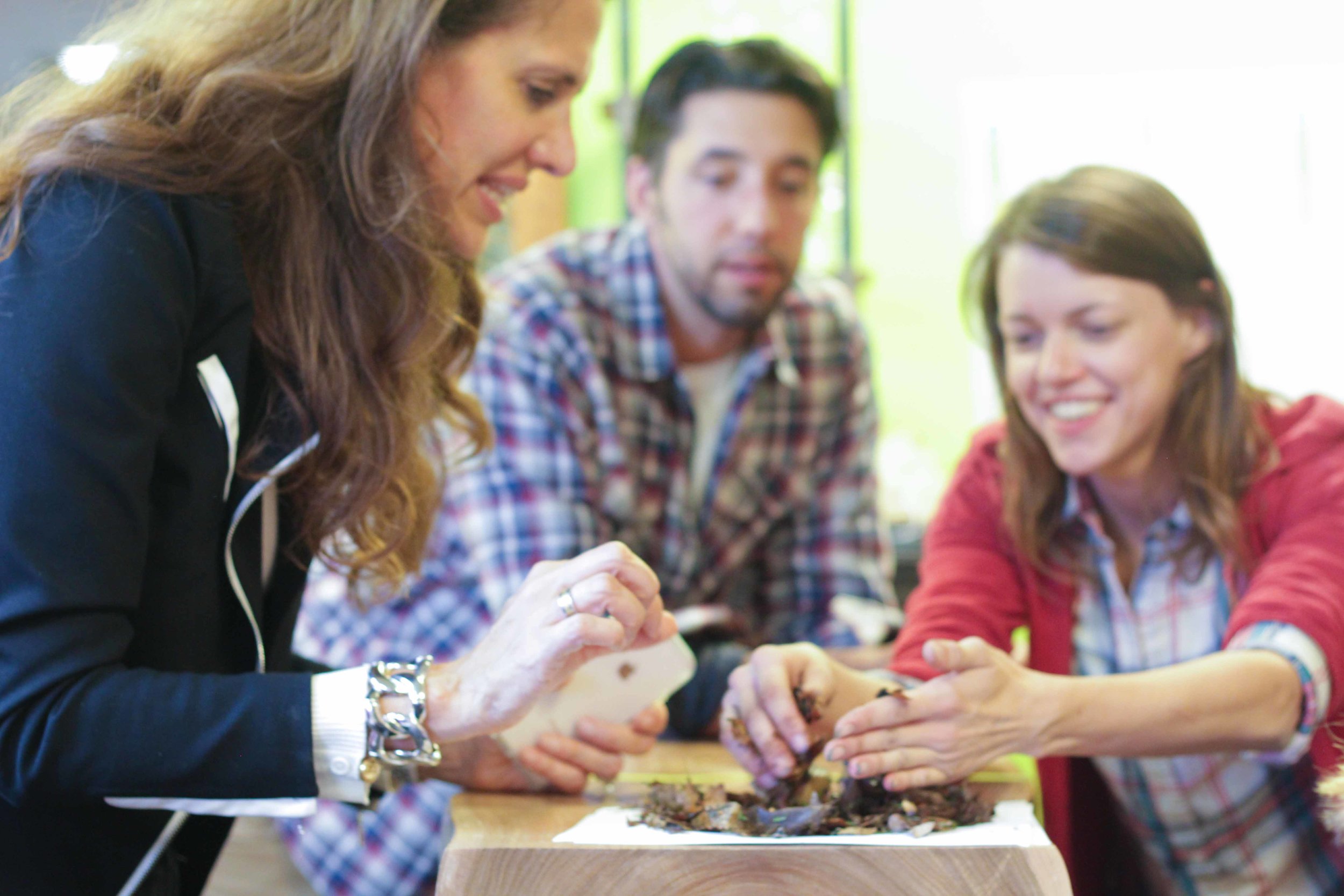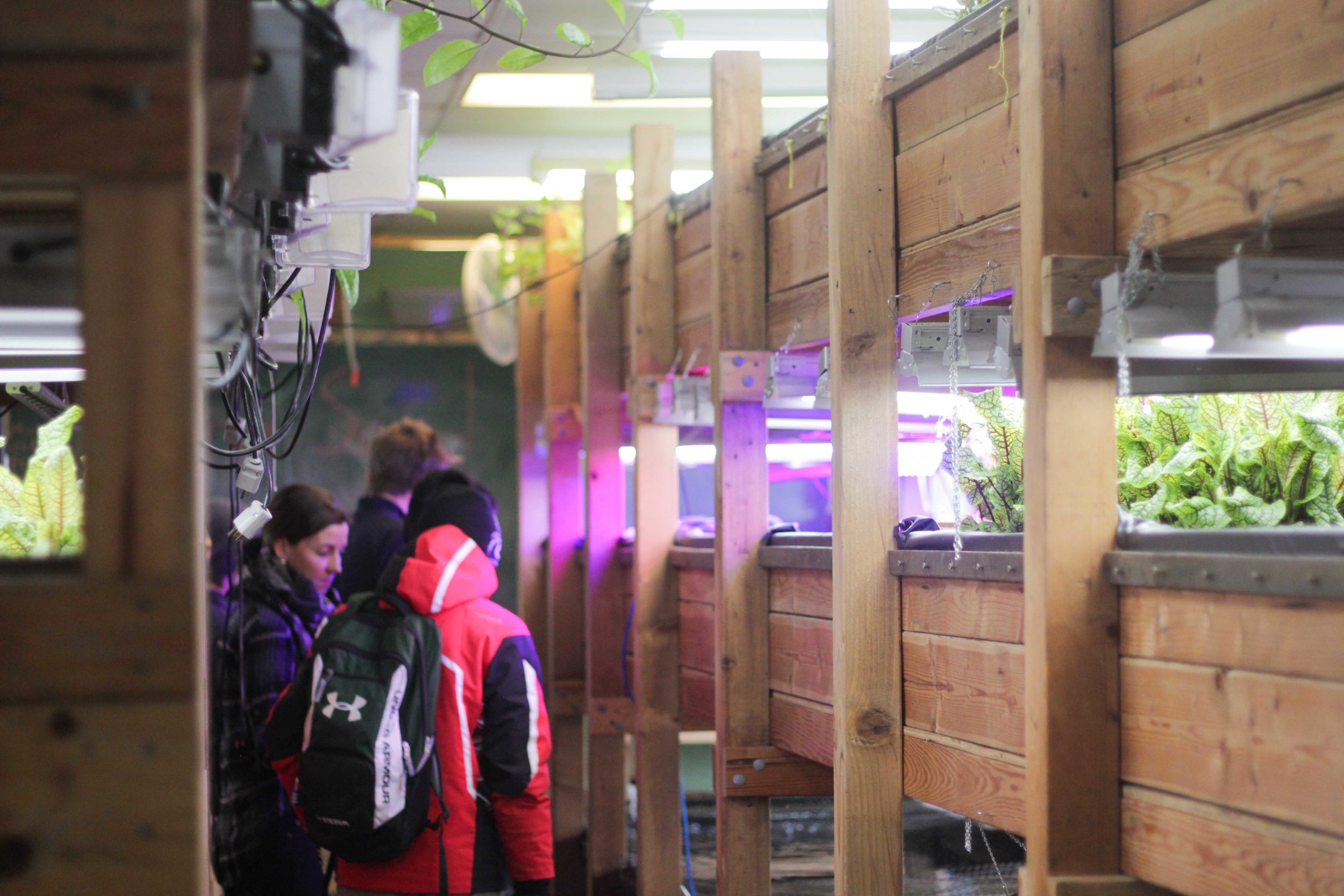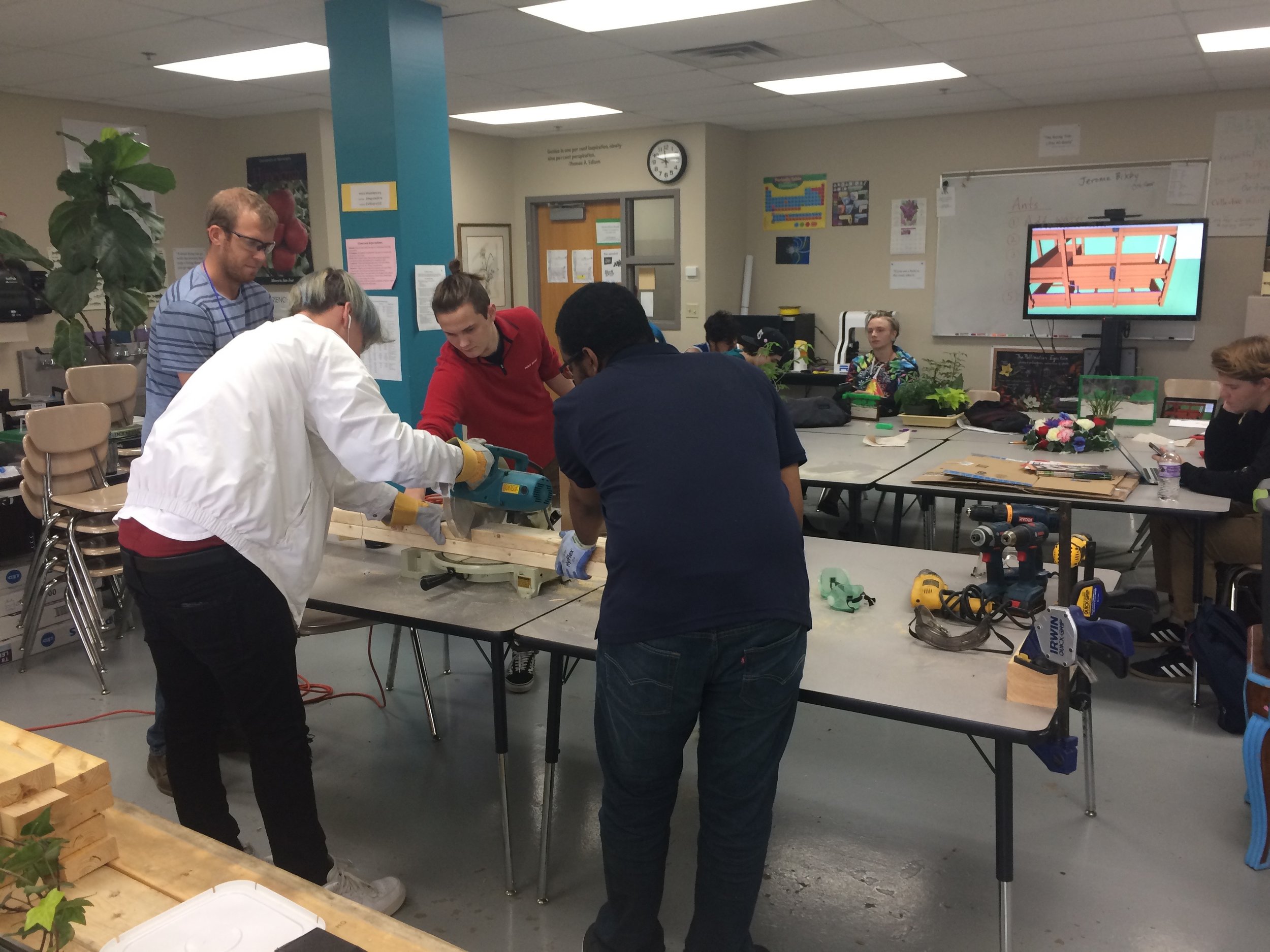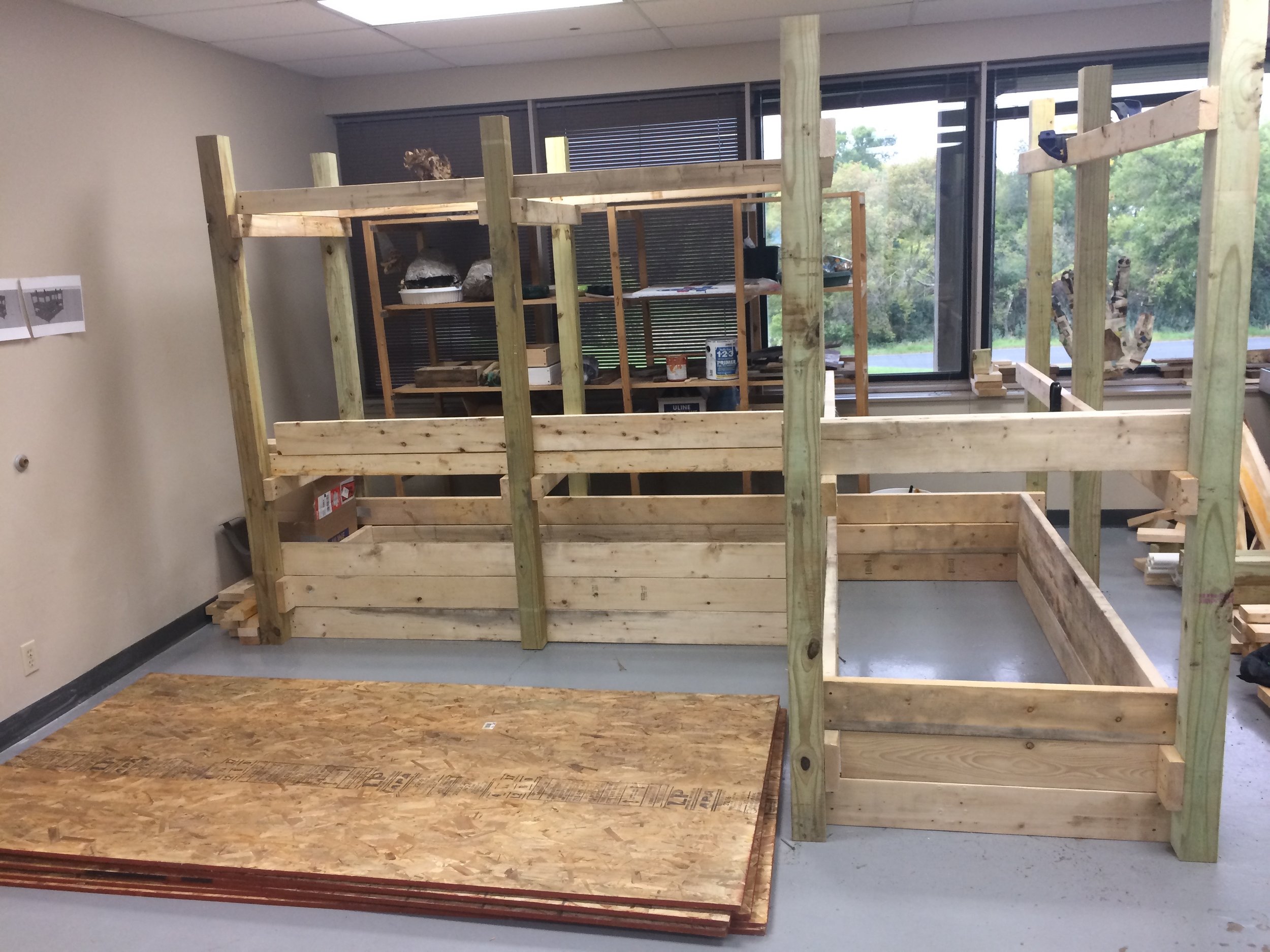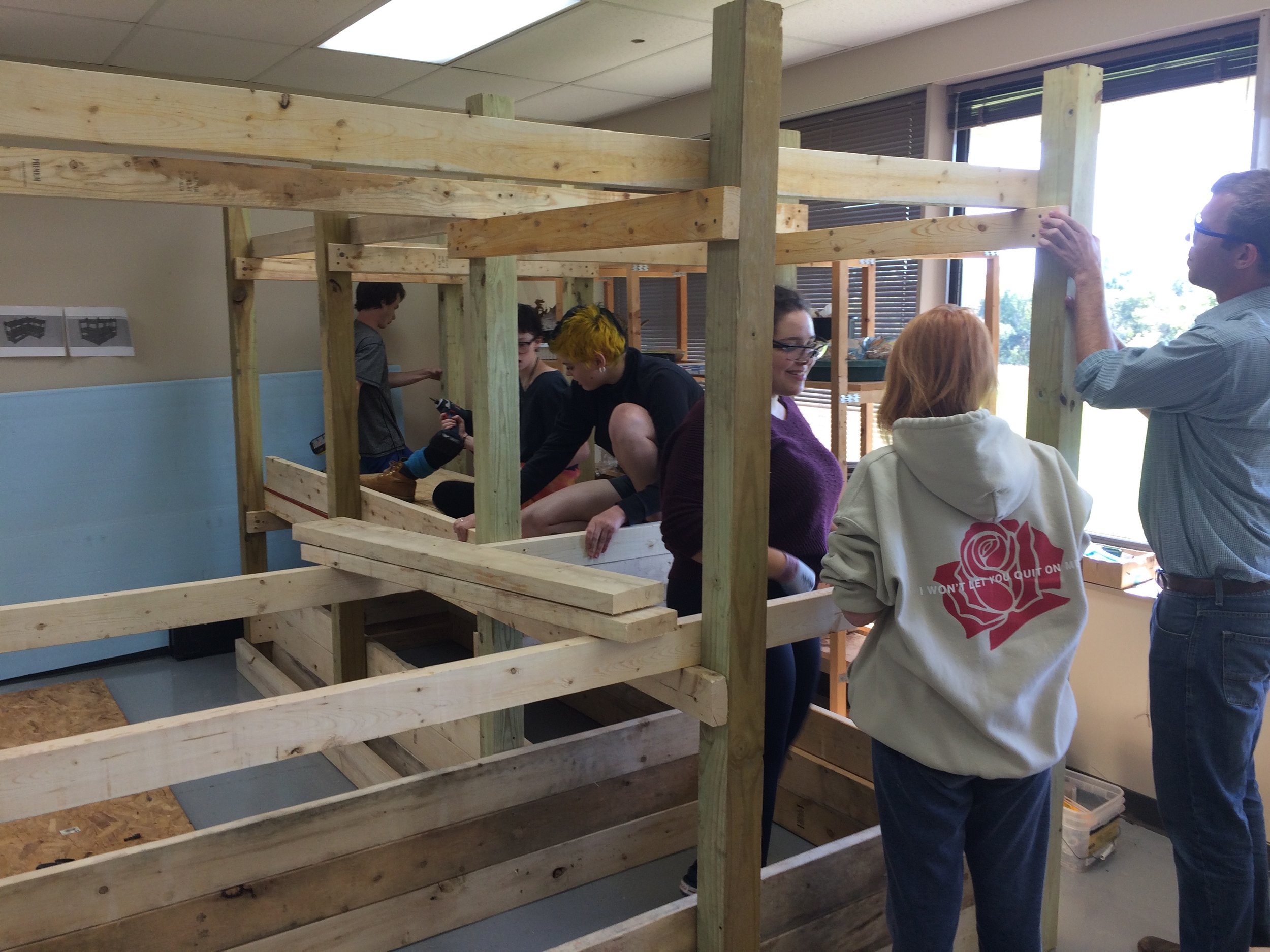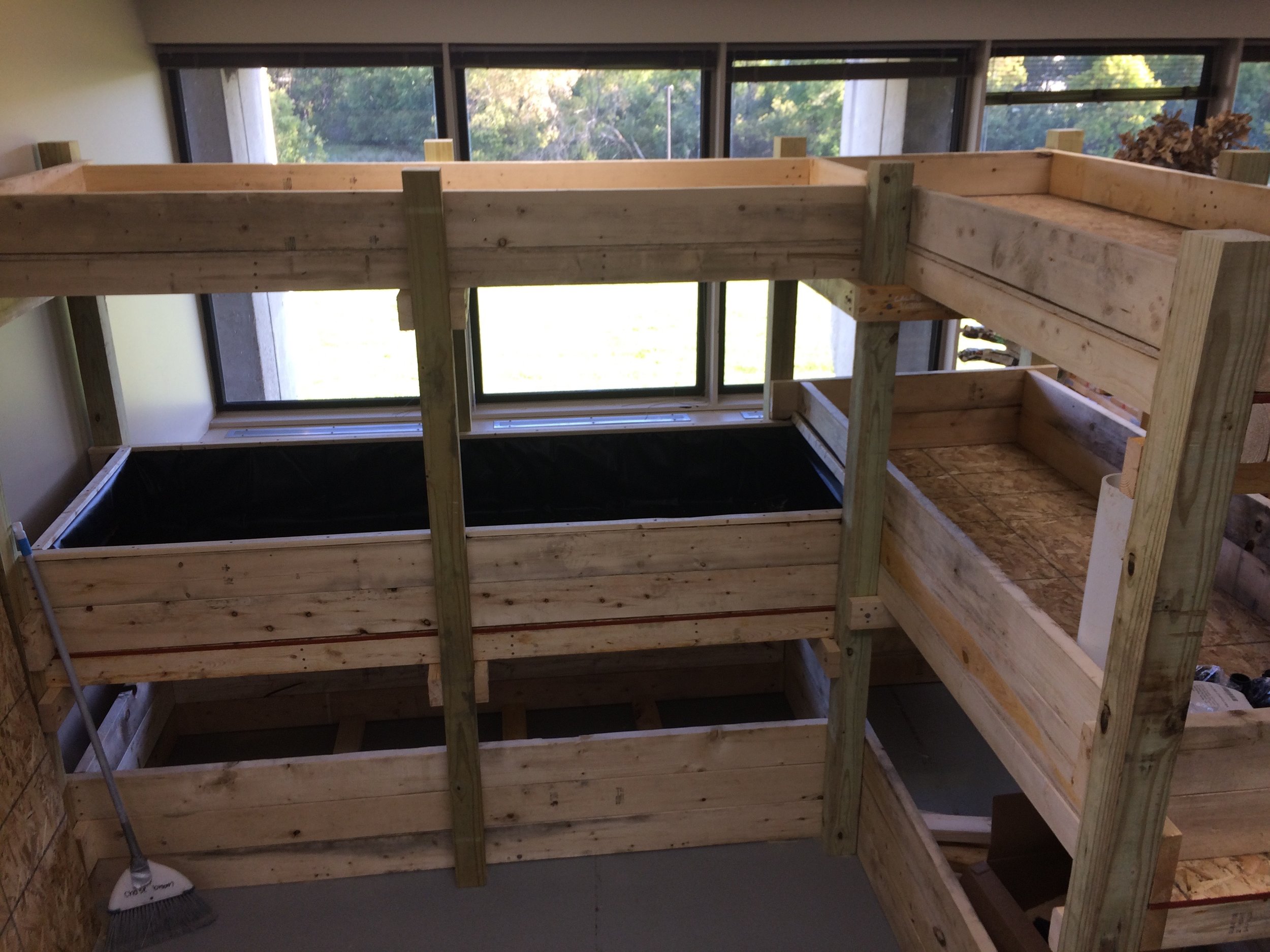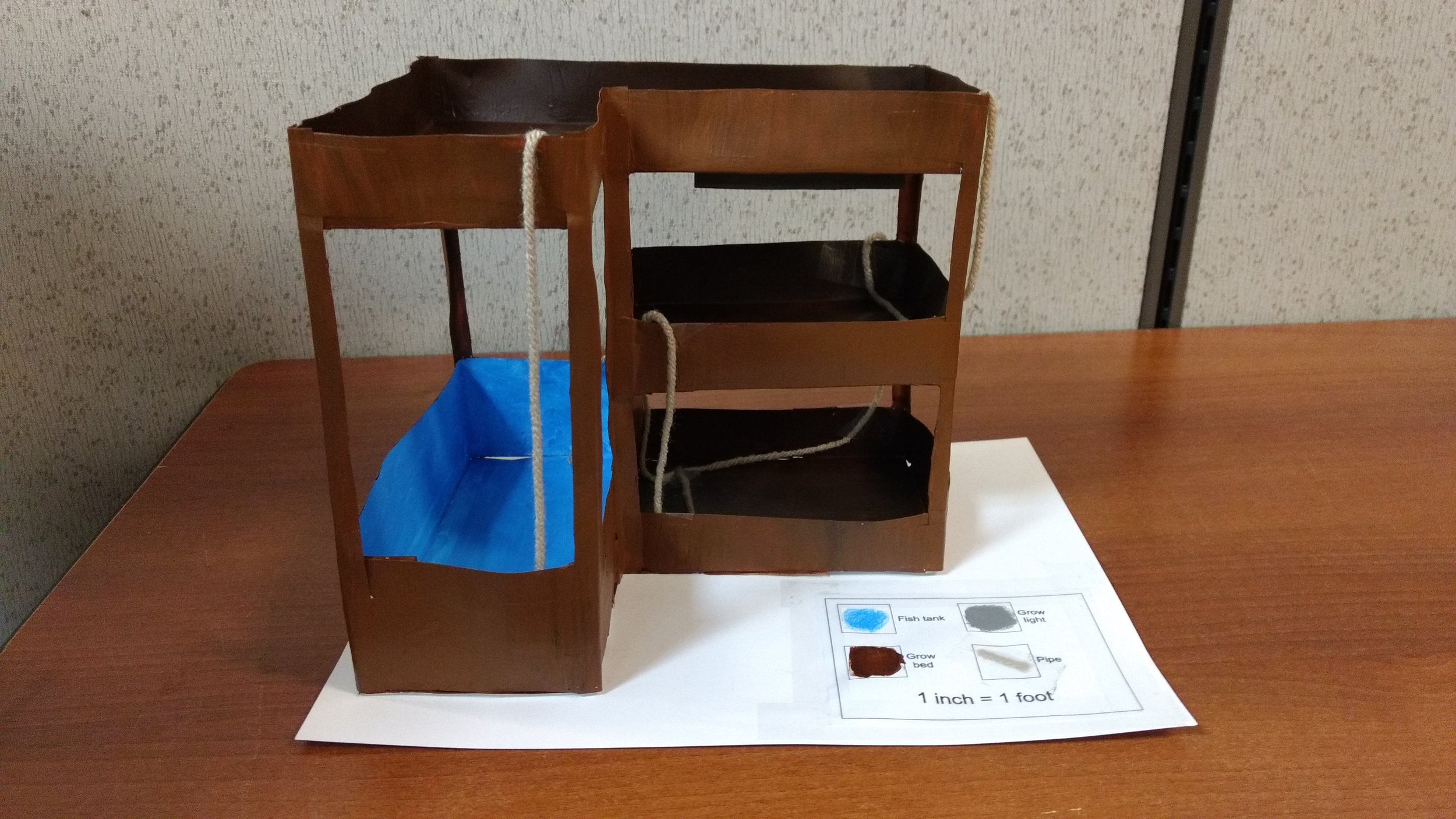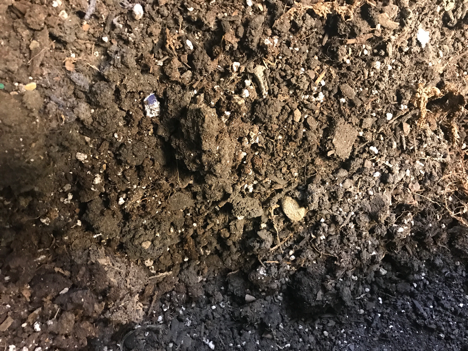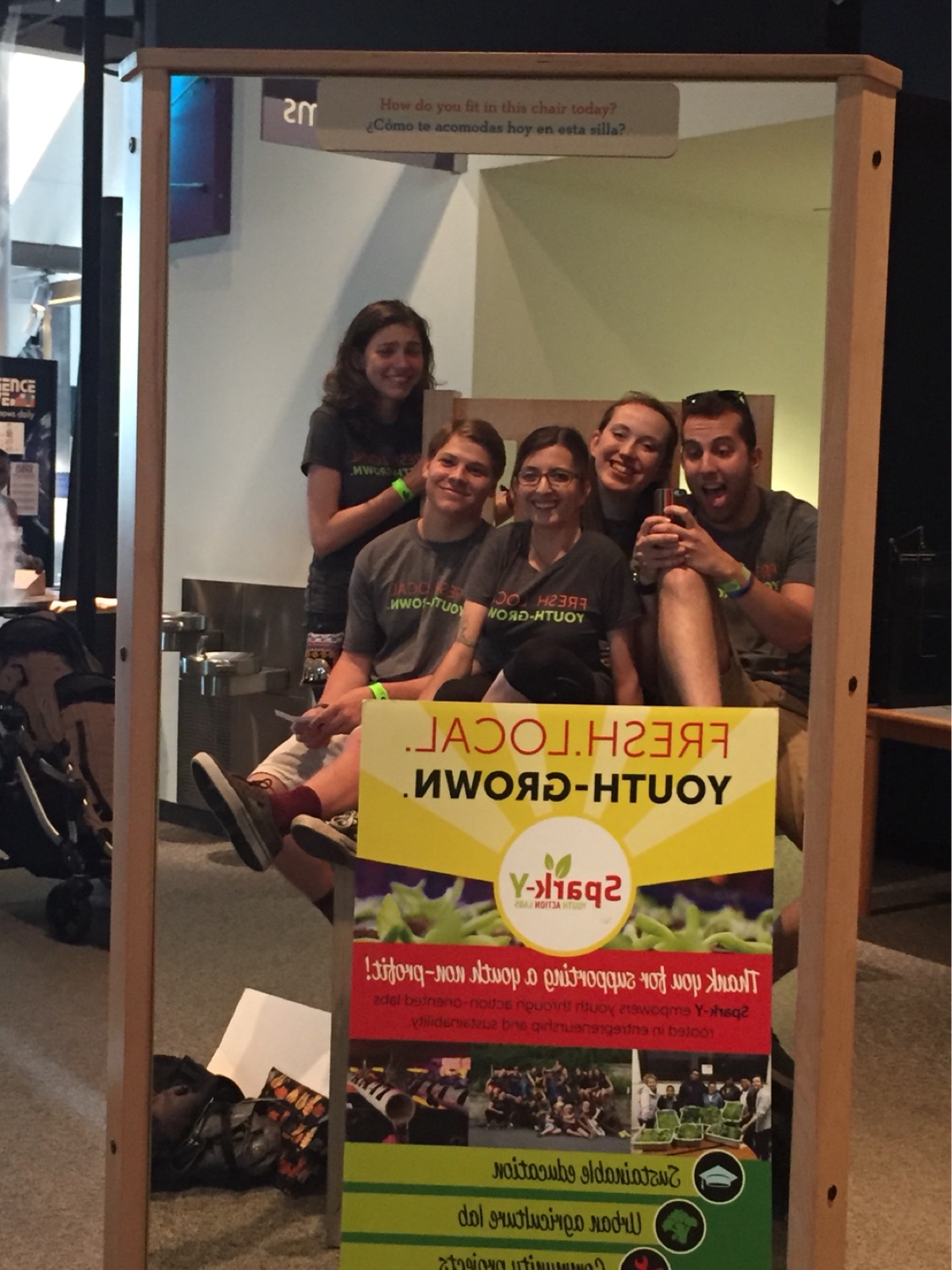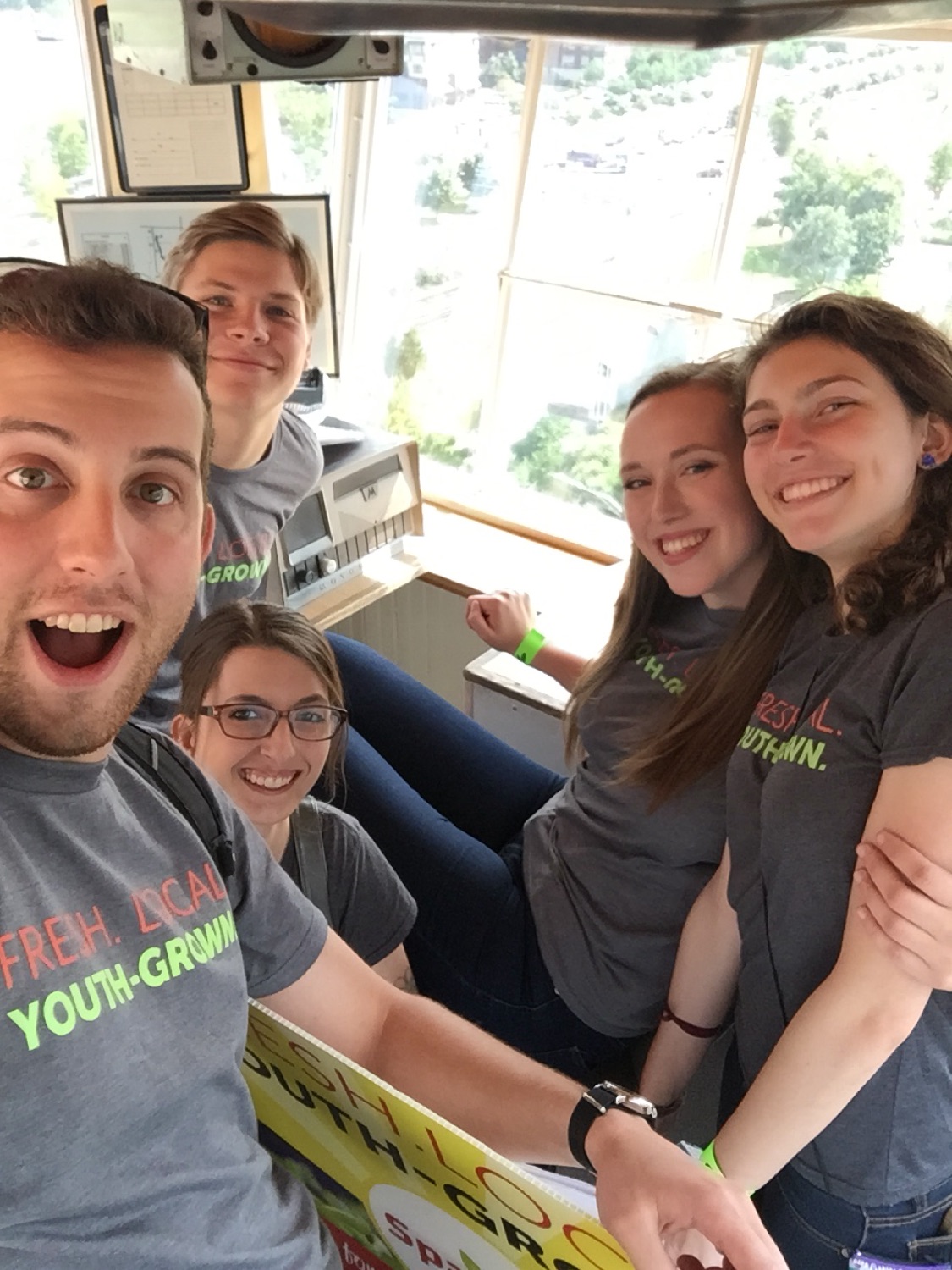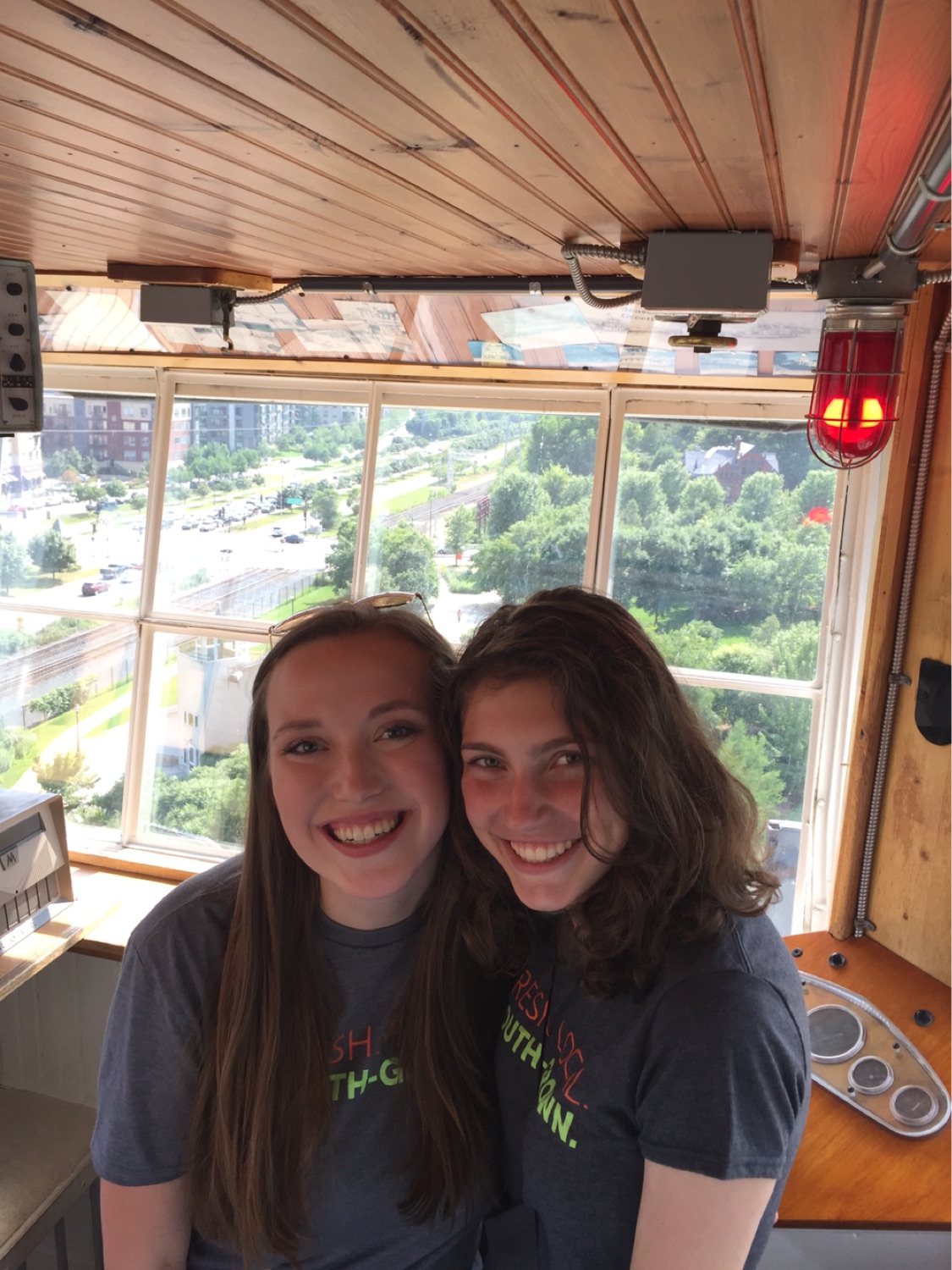Spark-Y’s Urban Agriculture Lab (UAL), offers a blooming paradise in a cold Minnesota winter! Youth operate our aquaponic production facility, raising microgreens for sale through the Gentleman Forager, facilitating regular tours, and organizing events such as our spring plant sale. Since the beginning of 2018 alone, more than 180 students and over 20 community members have toured Spark-Y’s UAL. Read on to learn more about the UAL, and the activities that our awesome interns, volunteers, youth apprentices, and citizen scientists are participating in.
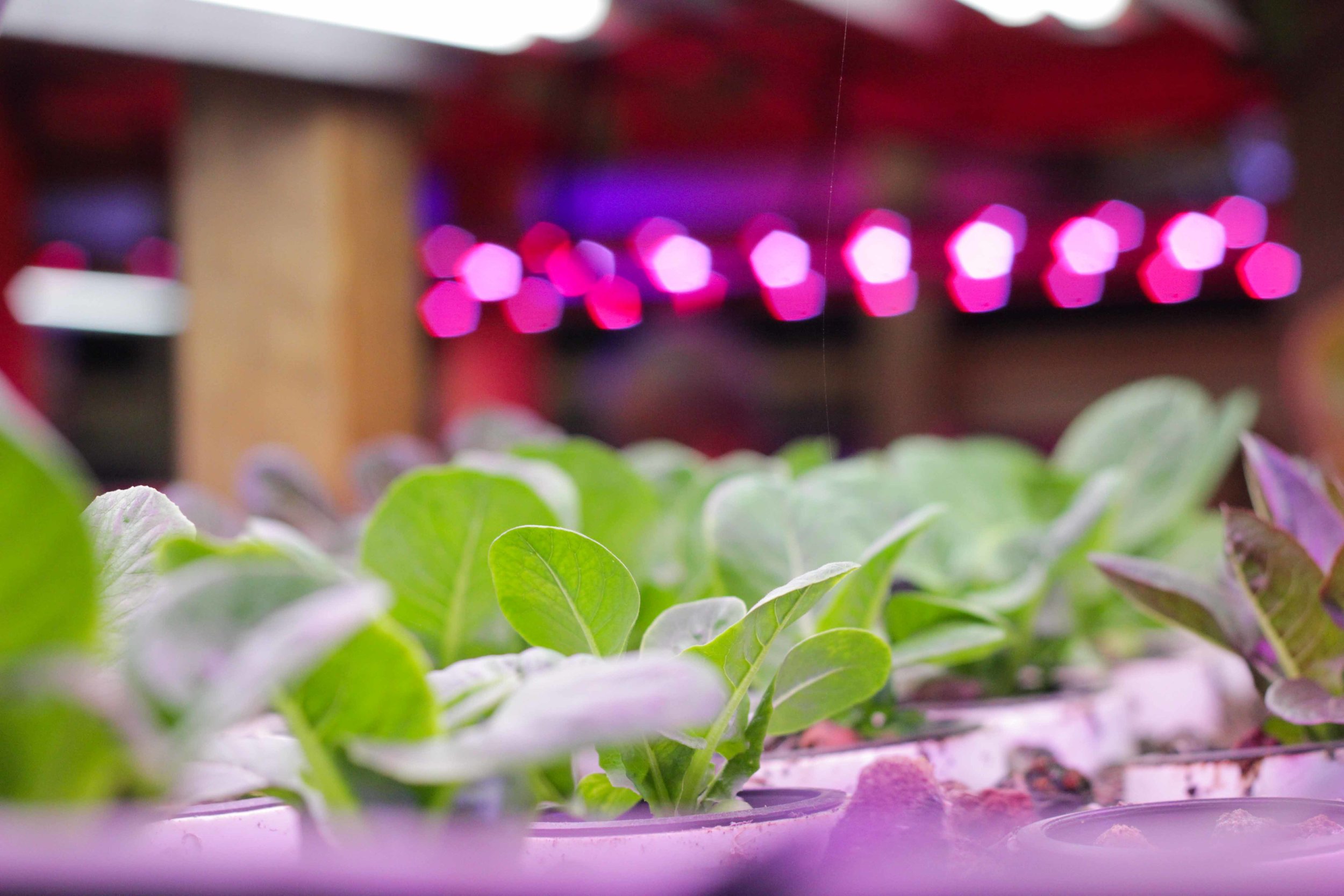

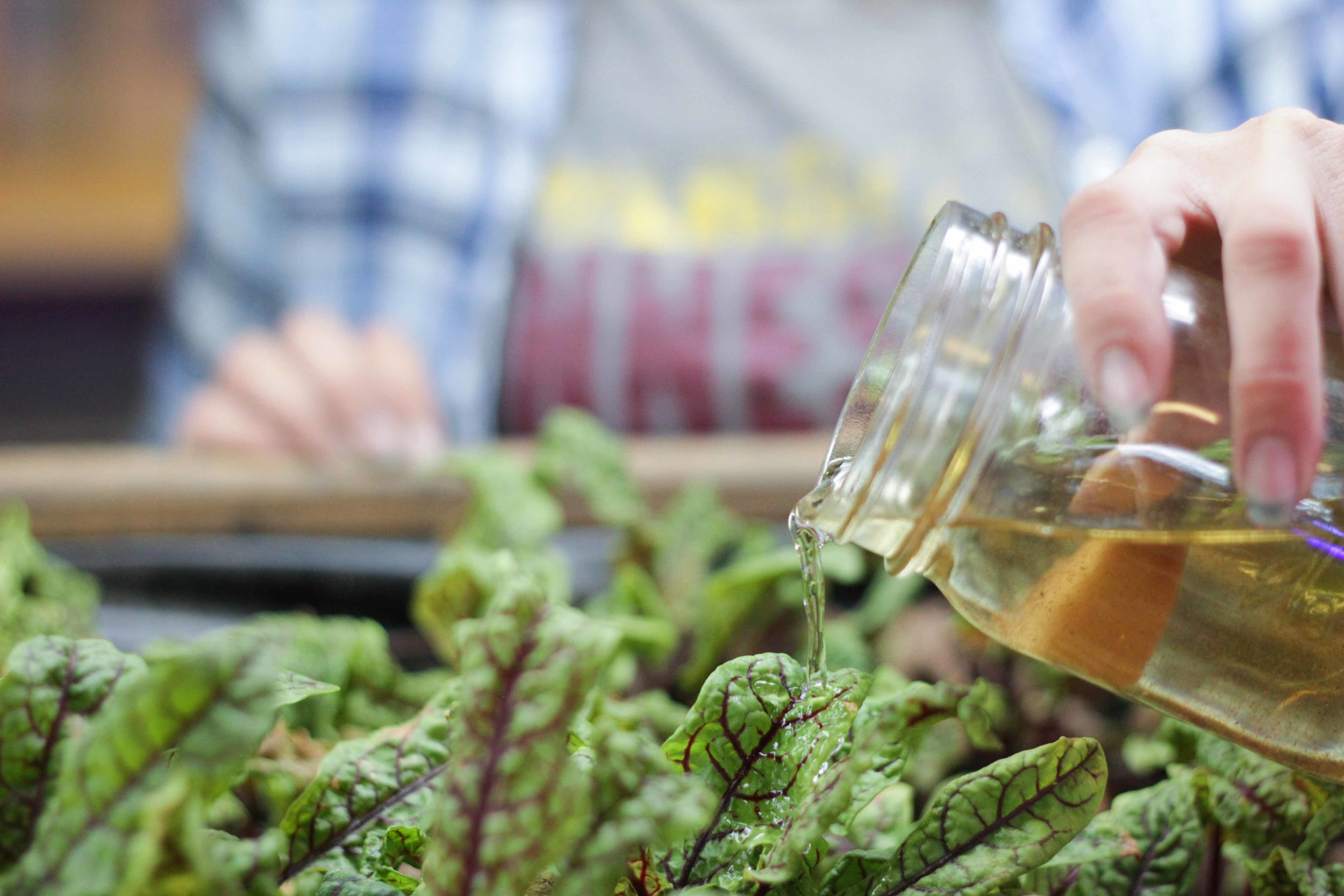
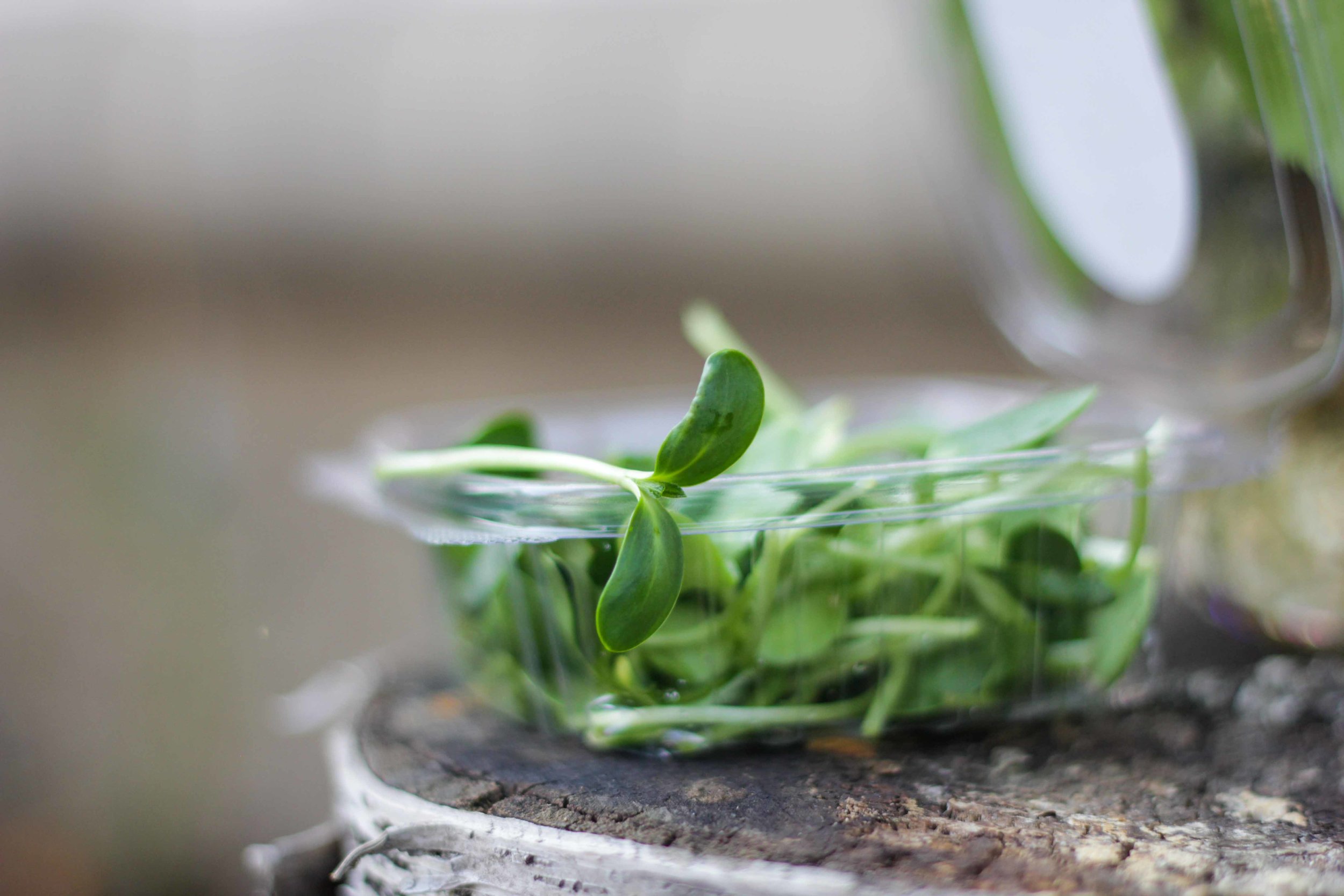
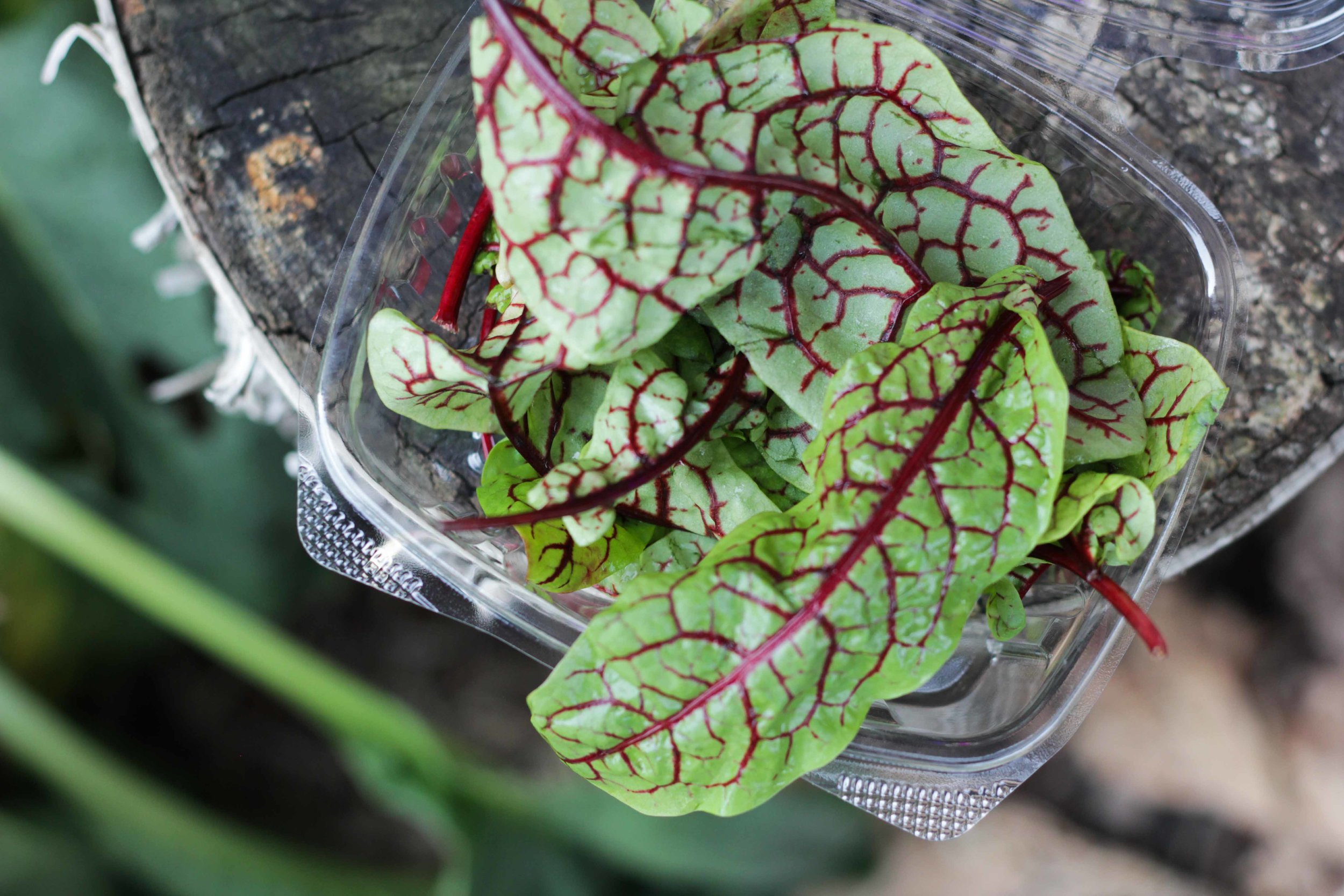
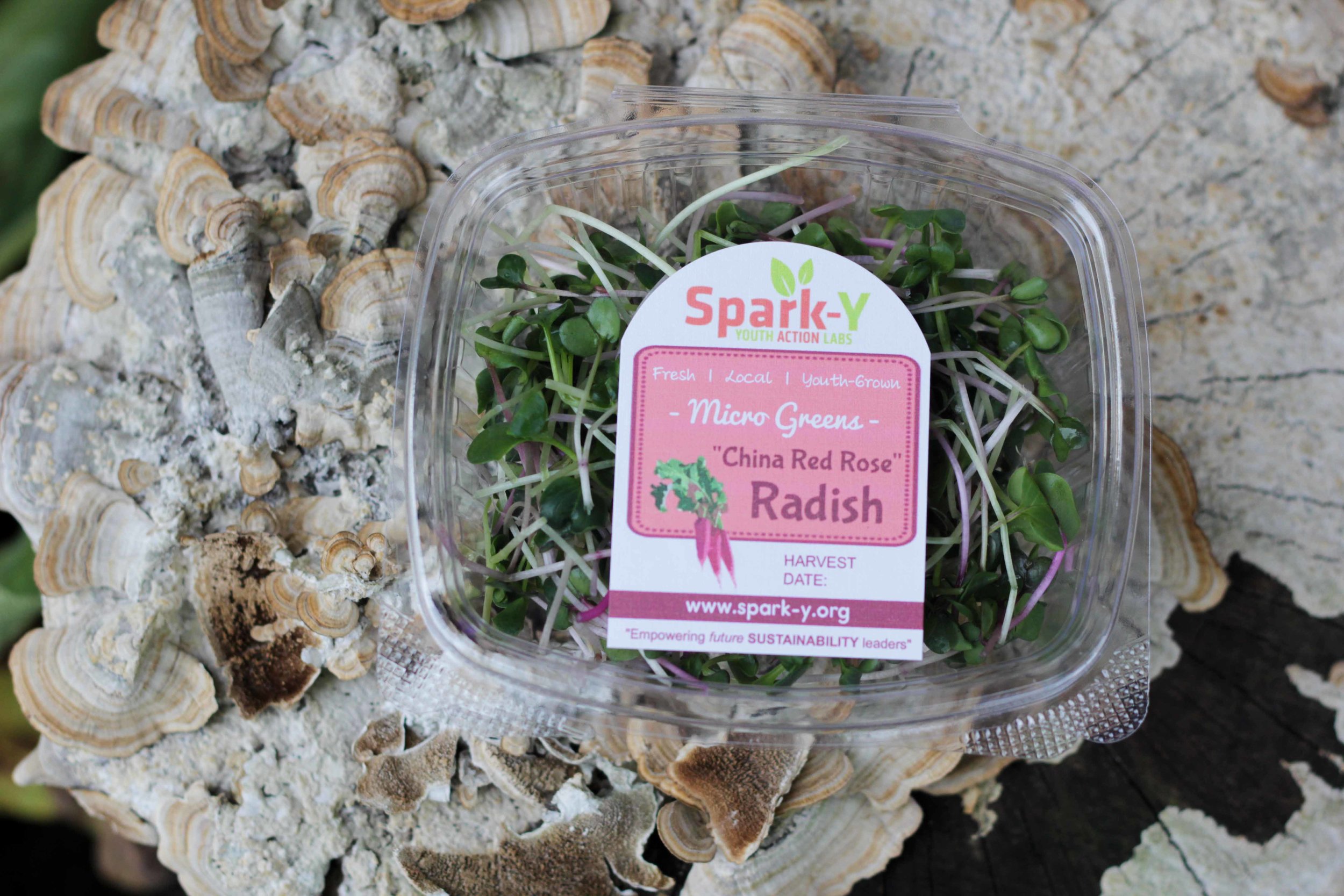

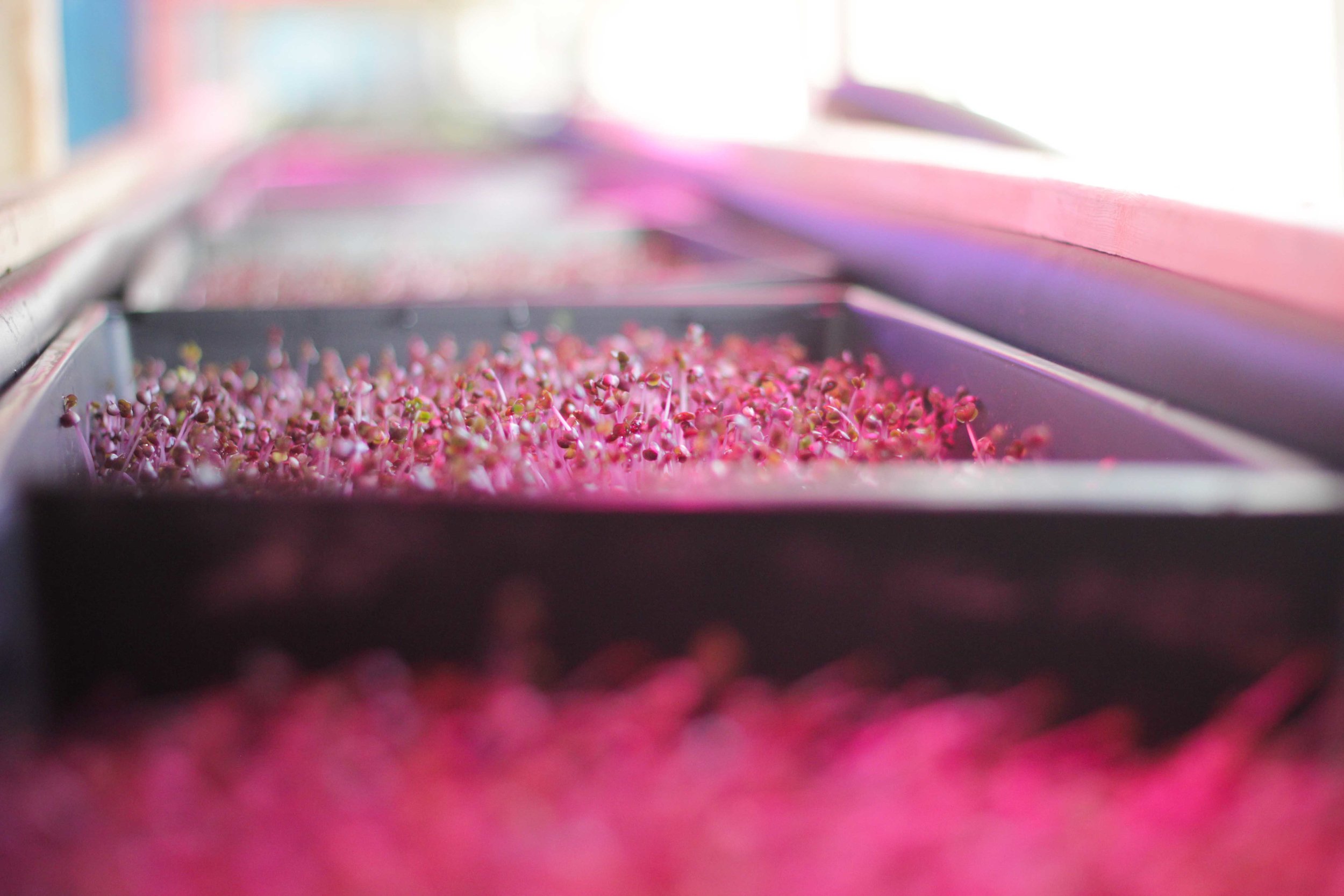
The Latest from the Urban Agriculture Lab
Spark-Y’s fresh, local, youth-grown microgreens are being used in restaurants across the Twin Cities, through our partnership with the Gentleman Forager. These microgreens will also soon be offered for sale at the Gentleman Forager stand in the new Keg and Case marketplace opening spring, 2018. Revenue earned through this partnership allows youth in Spark-Y’s school programs to be employed in the UAL, where they can apply the skills and knowledge learned in their school program to a real-world setting. Kelly, our first youth apprentice, was a student at Roosevelt High School. He participated in the Roosevelt Urban Farm Squad for two years, and in Spark-Y’s summer internship for two years. He was hired on as staff in August, 2017, and is now helping produce microgreens for the Gentleman Forager partnership.
Baby Blue Tilapia were bred as a special project by our intern Nicholas Jacob. They were born on November 3rd, 2017. These fry will reach a mature size within about nine months. Tilapia are the ideal species to raise with students in our school programs for their hearty nature, and ability to reach maturity quickly. We like to celebrate the creation of a food system with the students in our school programs, by participating in a fish fry at the end of each year. These Blue Tilapia fry are currently being raised by the youth apprentices and interns operating our UAL. We intend to sell them to local restaurants and individual consumers right around August, 2018 when they reach maturity. Our tilapia make extra tasty (and sustainable!) fish tacos incase you were wondering.
Spark-Y’s mission of sustainability education and empowerment stretches beyond the youth in our programs. Every-other Thursday evening from 6 to 7pm we welcome the public to join us on a tour of the UAL. Tours only cost $10, and will go through each of the sustainable systems we utilize in the classroom as drivers of STEM education. You can sign up for a tour on Spark-Y’s Shop page.
Side note: You can also stop by before the tour on Thursdays from 5-6pm to purchase fresh, youth-grown microgreens!
This summer, Spark-Y will also be partnering with the Hennepin County Library to offer a series of STEM focused workshops. Keep an eye on our Facebook page, or sign up for our newsletter to learn more.
What’s Ahead for the Urban Agriculture Lab:
Are you getting antsy for spring? We sure are! Get your pants from Spark-Y at our 2nd annual Spring Plant Sale taking place May 5th, 2018. All your veggies, flowers, herbs, and even native plants will be available! We will also be offering mushroom log demonstrations, UAL tours, and activities for the kiddos throughout the day. Sign up for our newsletter at Spark-Y.org to receive a pre-order form for the 2018 plant sale.
Looking to get involved?
You can support Spark-Y and our UAL by participating in any of the following events:
- Come on a tour - Offered every-other Thursday 6-7pm.
- Purchase microgreens @ Spark-Y, 5-6pm on Thursdays.
- Come to our plant sale on May 5th.
- Purchase a mushroom log, T-shirt, fanny pack, SCOBY, or vermicompost bin at Spark-Y.org, or on Thursdays 5-6pm.
- Sign up for our newsletter.
- Donate
- Volunteer
- Like & follow us on Facebook
